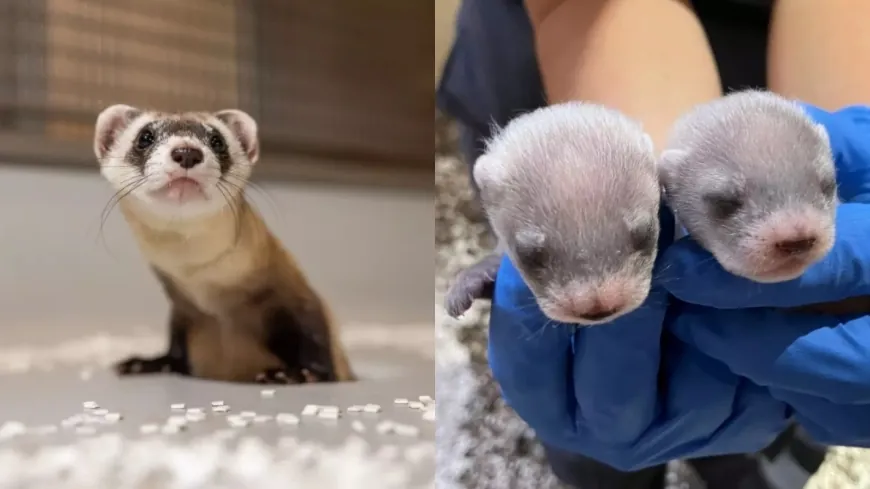Cloned ferret gives birth to 2 healthy kits at Smithsonian National Zoo’s Virginia campus

WARREN COUNTY, Va. (WRIC) -- A cloned black-footed ferret named Antonia gave birth to two healthy kits at the Smithsonian's National Zoo and Conservation Biology Institute's campus in the town of Front Royal in Warren County.
The institute said this is the first time a cloned U.S. endangered species has produced offspring, which may be a critical step in using cloning in conservation efforts.
"The successful reproduction of a cloned endangered species is a landmark in conservation genetic research, proving that cloning technology can not only help restore genetic diversity but also allow for future breeding, opening new possibilities for species recovery," the institute said.
The kits -- one male and one female -- are reportedly healthy and meeting developmental milestones. They'll stay at the facility in Virginia for further research, and there are no plans to release them into the wild.
The kits' mother, Antonia was cloned using tissue samples collected in 1988 from a ferret named Willa.
For more information, visit the U.S. Fish and Wildlife Service's website.

 VENN
VENN 





